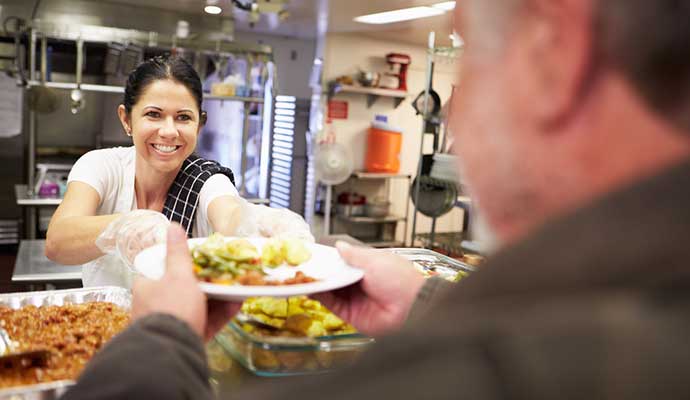
Poverty and homelessness are complex issues that defy a single, simple solution. Those who are poor and without housing are among the most vulnerable among us. These issues are complex on societal, systemic and individual levels.
God calls us to care for those who are vulnerable. To love our neighbour is the second greatest commandment, after loving God. Jesus’ parable of the Good Samaritan teaches that our neighbour is anyone who is in need.
In both the Old and New Testaments, the people of Israel and followers of Jesus were commanded to care for the foreigner, the widow and the poor. Another parable tells us that when we serve the vulnerable in our society, we are serving Christ (Matthew 25:34-36).
Government, businesses, churches and neighbourhoods all have a unique responsibility and role to play in meeting needs and finding solutions.
New Blog Dear church, about living on $2,000 a month or less, by Meagan Gillmore. Find link below under "Learn More."
Churches and Christian ministries help to meet immediate needs, such as food banks and out-of-the-cold shelters, but also help with long-term needs, such as job search assistance and crisis housing.
People may become poor or homeless for a variety of reasons. There are common risk factors and tragic commonalities, such as family breakdown, violence or abuse in the home, unemployment, recent immigration or release from prison, substance abuse, mental and physical illness and a shortage of affordable housing.
People who are homeless may live on the streets or in the shelter system, or may be more hidden, staying temporarily with friends or family.
In Canada, First Nations housing is a federal responsibility. Housing that meets the needs of people living with disabilities, the elderly, the working poor and those who sleep in shelters or on the street is primarily provincial or municipal jurisdiction.
The EFC was part of Street Level, the national roundtable on poverty and homelessness, from its launch in 2003 until its recent transition to regional networks. As part of Street Level, the EFC signed the Ottawa Manifesto, committing to a shared vision of Canada in which no person is denied the reality of home. (http://files.efc-canada.net/si/Poverty%20and%20Homelessness/Poverty_Manifesto1E.pdf)
Globally, people living in abject poverty earn less than $2 per day and have no access to clean water or medical care. Decades ago, Canadian Prime Minister Lester B. Pearson committed to raising our Overseas Development Assistance (ODA) to 0.7% of Gross National Income. Canada has never reached that goal.
A Micah Challenge initiative was launched by the EFC and other networks and agencies to advocate for Millennium Development Goals to halve global poverty by 2015.
After many years of requests, the federal governmen released its first anti-poverty strategy in August 2018. It clarified that the Market Basket Measure, based on a "basket" of goods made up of essential items a person needs to live (adjusted for family size and location), will be Canada’s official poverty line.
Some Christian activists are saying chronic poverty can be abolished in Canada, as a May 2019 article in Faith Today explains.
New Blog Dear church, about living on $2,000 a month or less, by Meagan Gillmore. Read now at FaithToday.ca.
God commands His people, in Deuteronomy 15:11, to “open wide your hand to your brother, to the needy and to the poor, in your land.”
Many times, in both the Old and New Testaments, God says that worship and religion are empty without actions of justice, mercy and faithfulness (Isaiah 1:10-20, 58:3-12; Matthew 23:23; Amos 5:21-24; Micah 6:6-8; James 1:27, 2:17).
God describes Himself as on the side of the poor, the widow and the orphan, and says He will judge those who injure and oppress (e.g. Isaiah 3:13-15, 10:1-3; Matthew 25).
As the EFC and other signatories affirmed in the Ottawa Manifesto, “the care of poor and vulnerable people of all ages is a central tenet of our own faith, of good government, and of responsible, compassionate citizenship.” (http://files.efc-canada.net/si/Poverty%20and%20Homelessness/Poverty_Manifesto1E.pdf)